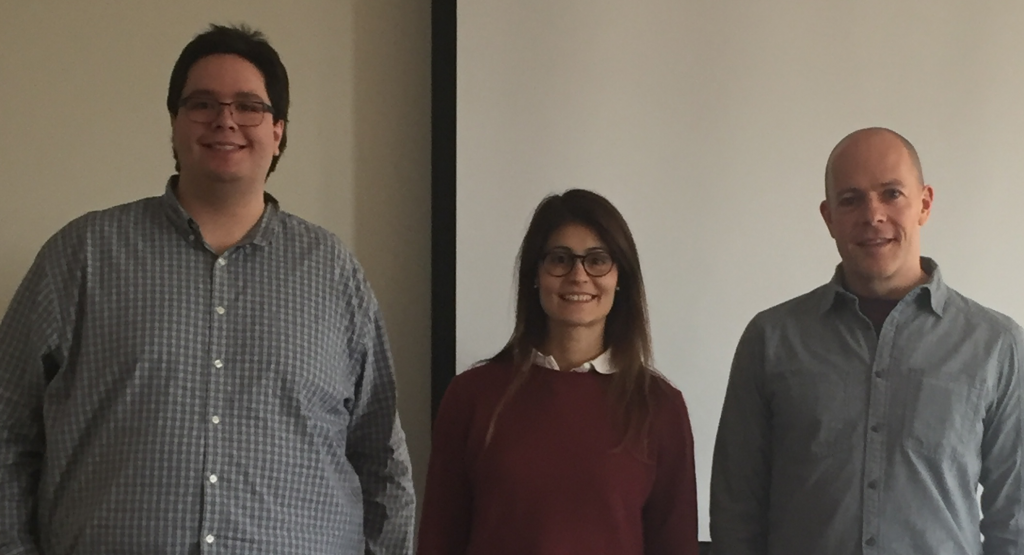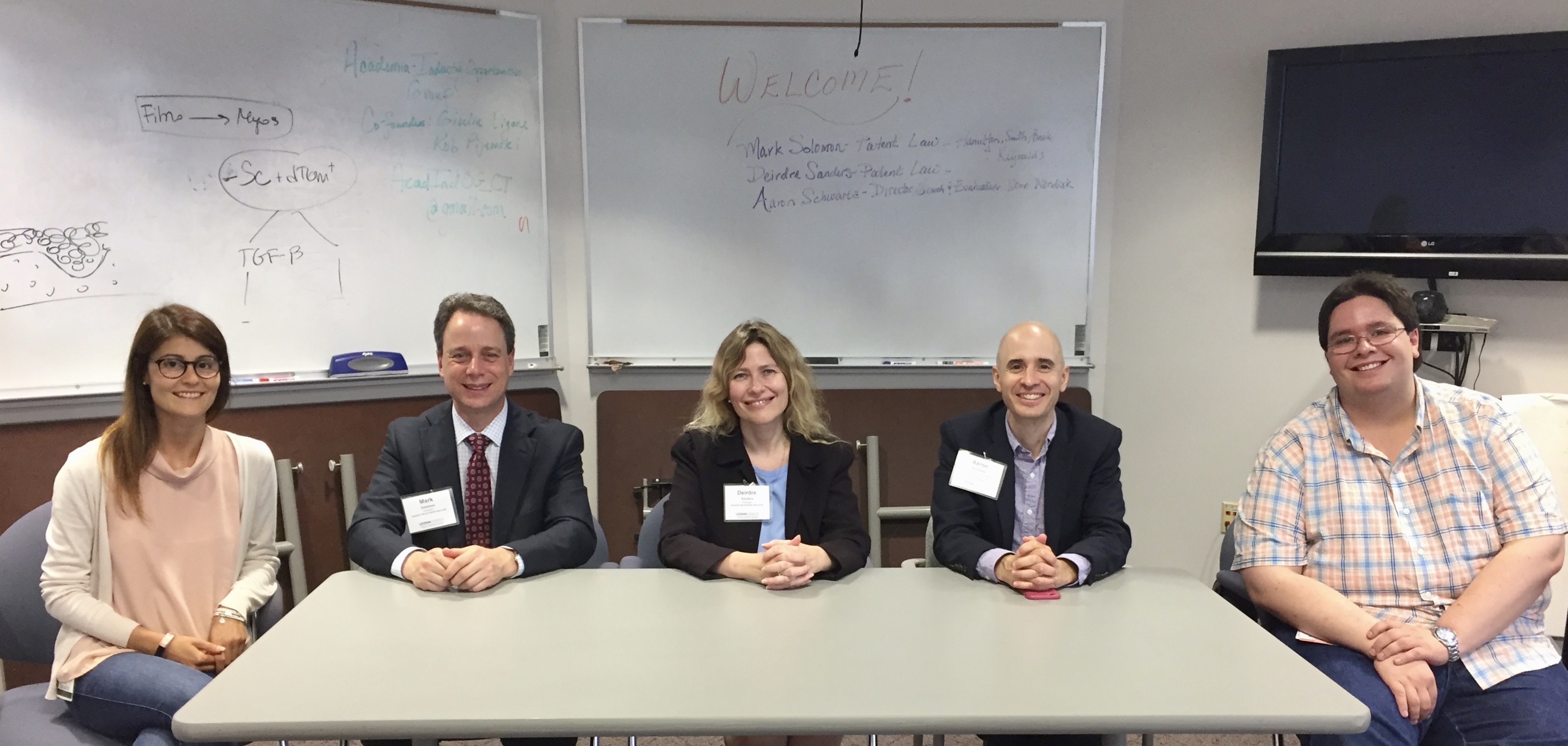In the competitive academic job market, it’s estimated there is one tenure track position available for every six recent Ph.D. graduates.
Plus, earning tenure can take up to 20 years as you juggle grant submissions, publications, student mentorship, course assignments, and other administrative tasks.
No wonder many Ph.D. students are exploring options outside of academia. To help educate students on non-academic career options, postdoctoral fellow Giulia Vigone and graduate student Robert Pijewski have established the Academia-Industry Opportunities Group (AIOG) at UConn Health.

“After many years within familiar academic environments, graduate students and postdocs often feel intimidated by what is outside academia,” explains Vigone. “We founded AIOG with the hope of helping them (us included) become familiar with the diverse career pathways available to scientific Ph.D.s, other than the canonical academia track.”
Thanks to AIOG, graduate students and postdoctoral fellows from the greater Hartford area have come to UConn Health to attend seminars on pharmaceutical drug discovery, patent law, medical science liaison, and technology transfer.
“With the growing presence of biotech in Connecticut, this group created a perfect opportunity to connect highly educated and motivated students with leading industry representatives in Connecticut,” says Pijewski.
“Interacting with students and postdocs through this group has been a great opportunity to share my career path and to explain to others about what I do,” says Barry Schweitzer, Ph.D., a venture capitalist at Elm Street Investors who presented at both a networking event last spring as well as a seminar this fall. “My advice is to take every opportunity to build your professional network. Most jobs in healthcare are found through personal contacts, not by sending a resume to a website.”
The AIOG seminar series presented some other key advice:
Be willing to adapt to change – with new technologies, a position in industry may lead to various opportunities not readily apparent at the time.
Having a degree is not enough to land a good job. You have to prepare for the next step while finishing the current step.
Conduct informational interviews with professionals in careers and companies that interest you. Informational interviews are mutually beneficial since they’ll be able to gauge your potential fit at their company.
Have at least five business cards on you at any given time. You never know when you might come across a serendipitous moment on your commute, at lunch, or while on vacation. Tip: Write something personal about your meeting on the card to reference for follow up communication.
Never underestimate the importance of clear and concise communication. For example, an interviewer may ask you to explain a difficult concept or your thesis in order to assess your effectiveness as a communicator. Tip: Writing seminars, teaching, mentorship, public speaking, or even discussing science with lay audiences can improve your communication skills.
“I commend the trainees for their leadership in forming the AIOG and hosting a group of excellent and diverse speakers,” notes Dr. Barbara Kream, associate dean of the graduate school at UConn Health. “The AIOG sessions provide a terrific forum for making biomedical science trainees aware of the variety of career opportunities open to them.”
For more information about AIOG or if you would like to present a topic with the group, please contact the CT AIOG at AcadIndOG.CT@gmail.com.



